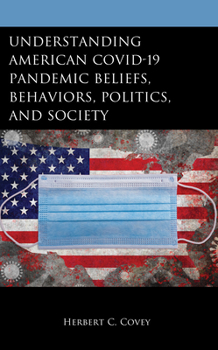Understanding American Covid-19 Pandemic Beliefs, Behaviors, Politics, and Society
In Understanding American COVID-19 Pandemic Beliefs, Behaviors, Politics, and Society, Herbert C. Covey presents an overview of how the COVID-19 pandemic has impacted American society. He proposes that the social and political contexts leading up to and during the pandemic fueled differing and sometimes opposing attitudes and behaviors. Some Americans saw COVID-19 as a dangerous threat while others dismissed it as overblown. Covey observes that these divergent views occurred in a vacuum but were influenced by various political, historical, cultural, psychological, and social factors. He argues that Americans' social perceptions of the pandemic were affected by the unpredictability of the virus, erosion of trust in science and institutions, degradation of the news by biased news sources and social media, loss of critical thinking skills, denialism, truth decay, high emotions, racism, and unprecedented politicization of the pandemic. In addition, the susceptibility of some Americans to COVID-19 rumors, myths, misinformation, and conspiracies led them to make poor health decisions resulting in more severe cases of COVID-19 or, in some cases, death. The book includes data from numerous national surveys to document American beliefs and behaviors related to the pandemic. Finally, the author shows how these beliefs have led to protests, conspiracies, and social movements regarding pandemic responses.





